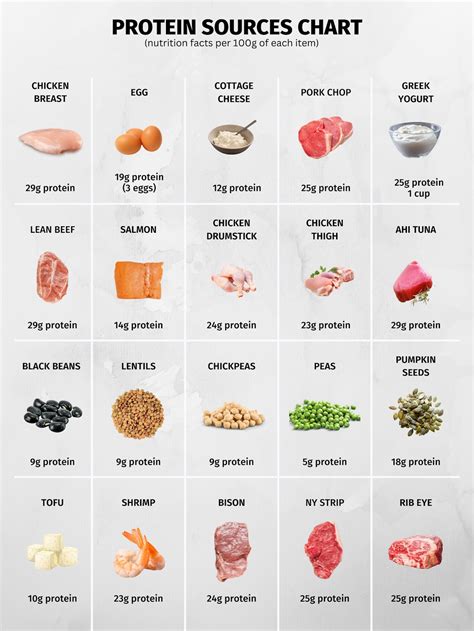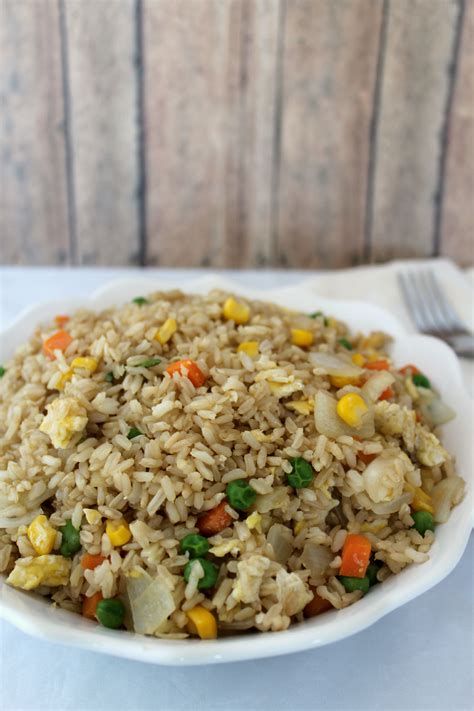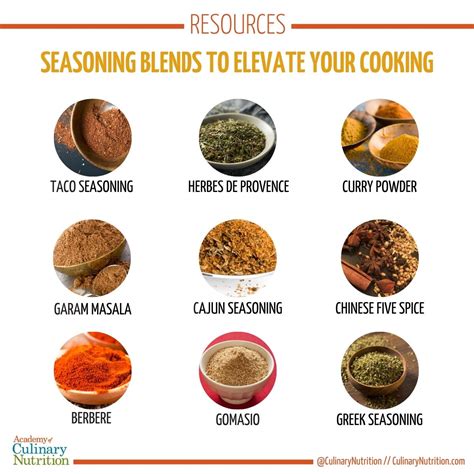Top 10 High Protein Foods for a Healthy Diet
Every cell in our bodies contains some protein. When we eat protein-rich foods, it helps fix our current cells and build new ones. This includes things like enzymes that help break down our food, as well as hormones, immune cells, skin, muscles, and organs. If we don’t get enough protein, our body might struggle to... The post Top 10 High Protein Foods for a Healthy Diet appeared first on CalorieTarget.

Every cell in our bodies contains some protein. When we eat protein-rich foods, it helps fix our current cells and build new ones. This includes things like enzymes that help break down our food, as well as hormones, immune cells, skin, muscles, and organs. If we don’t get enough protein, our body might struggle to keep all these systems and tissues in good shape. For example, having enough protein is crucial for our immune system to make antibodies, which are proteins that help us fight infections. (1) (2)
Protein can be found in both plant-based and animal-based foods. While most people get protein from a mix of sources, it’s totally possible to get all the protein you need from a vegetarian or vegan diet. This list focuses on foods that are minimally processed, but it’s good to know that you can also find protein in things like protein powders, bars, and drinks. (3)
Seeds
Various seeds, like chia, sesame, sunflower, hemp, flax, and pumpkin seeds, are rich sources of protein. A quarter cup of pumpkin seeds contains approximately 10 grams of protein and 190 calories
According to a study, pumpkin seeds are packed with beneficial polyunsaturated and monounsaturated fatty acids, along with antioxidants that promote health. The study describes pumpkin seeds as nutritional powerhouses that can be potent tools in the fight against conditions like arthritis, inflammation, and prostate cancer. Additionally, pumpkin seeds contain tryptophan, a substance that transforms into serotonin, a natural mood-enhancing chemical. This can contribute to alleviating feelings of depression. (4)
Beans and Chickpeas
Beans are packed with polyphenol antioxidants. These helpful compounds can lower inflammation and protect against oxidative stress, a form of cell damage linked to various diseases such as obesity, diabetes, heart disease, and cancer. A cup of cooked white beans contains nearly 17 grams of protein and 242 calories
In addition to their health benefits, beans and chickpeas can be a versatile addition to your meals. You can use them in breakfast scrambles, chilis, soups, stews, casseroles, salads, curries, dips, and even in desserts like chickpea cookie dough, red bean ice cream, and black bean brownies.
Quinoa
Quinoa is a remarkable source of plant-based protein that offers a wide array of health benefits. This ancient grain is packed with all nine essential amino acids, making it a complete protein. This quality makes quinoa an excellent option for individuals following vegetarian or vegan diets, as well as those looking to increase their protein intake. A cup of cooked quinoa contains nearly 8 grams of protein and 229 calories.
Beyond its protein content, quinoa is also rich in fiber, vitamins, and minerals, including magnesium, iron, and potassium. These nutrients contribute to improved digestion, enhanced muscle function, and a strengthened immune system. (5)
Moreover, quinoa is gluten-free, making it a suitable choice for individuals with gluten sensitivities or celiac disease. Incorporating quinoa into one’s diet can lead to sustained energy levels, increased feelings of fullness, and overall improved well-being.
Eggs
Eggs are a budget-friendly choice for protein, as they are low in carbs and calories. A medium egg approximately contains 6 grams of protein and 65 calories.
Besides being affordable, eggs pack a nutritional punch. They offer a complete protein along with a wealth of important vitamins and minerals. (6)
Most of the egg’s nutrients, like vitamin D, omega-3 fatty acids, B vitamins, and choline (which could boost mental clarity), are found in the yolk.
Tofu
Tofu, a versatile plant-based protein, is derived from soybeans and is a popular staple in vegetarian and vegan diets. This protein-rich food offers a range of benefits for health-conscious individuals. Firstly, tofu is a complete protein, meaning it contains all essential amino acids necessary for bodily functions. This makes it an excellent meat substitute for those seeking to reduce their meat intake. A half cup of tofu approximately contains 10 grams of protein and 94 calories.
Seafood
Wild salmon or sardines can be added to avocado toast at breakfast and fish can be added to salads, soups, stews, tacos, pasta and rice dishes, summer rolls and more. A 4 ounce of serving salmon approximately contains 25 grams of protein and 166 calories.
Wild salmon is an excellent source of lean protein. It offers remarkable advantages due to its fats that fight inflammation. Moreover, it provides a crucial nutrient, omega-3 fat, which your body can’t produce on its own. (7)
Studies have shown that the abundant omega-3 fatty acids in wild salmon have a positive effect on lowering triglyceride levels and blood pressure. They also reduce platelet stickiness. This, in turn, decreases the likelihood of plaque and blood clot formation in your arteries, which are major contributors to heart attacks and strokes. Additionally, omega-3 fats have positive effects on your brain and nervous system. (8)
Omega-3 fats EPA (eicosapentaenoic acid) and DHA (docosahexaenoic acid) in wild salmon are beneficial in reducing inflammation. This not only applies to heart disease but also extends to autoimmune diseases. (9)
Chicken
Chicken comes in various cuts like breasts, thighs, wings, and drumsticks. These cuts differ in protein, fat, and calorie content, making them suitable for different uses. Chicken is widely eaten across the globe and is particularly favored by fitness enthusiasts for its rich protein content. Including high-protein foods like chicken in your diet can assist in achieving health and fitness objectives, like building and maintaining muscle, as well as shedding excess fat. A 100 grams of chicken breast approximately contains 30 grams of protein and 195 calories. (10) (11)
Each cell in our body contains some protein. When we eat protein-rich foods, it aids in fixing and building new cells. This includes special proteins like enzymes that help with digestion, as well as hormones, immune cells, skin, muscles, and organs. If we don’t get enough protein, it can be hard for our body to keep these systems and tissues in good shape. To illustrate, having enough protein is crucial for our immune system to create antibodies, which are special proteins that fight off infections. (12)
Lentils
Lentils are a type of plant-based food that are packed with protein. They contain more natural compounds called phenols compared to other common legumes. These phenols have been found to provide defense against heart disease, cancer, and diabetes. Additionally, studies have demonstrated that lentils can lower inflammation, support good bacteria in the gut, and lower the risk of obesity. (13)
You can include lentils in a variety of dishes, such as curries, soups, stews, salads, layered bowls, dips. A cup of cooked lentils contains neatly 17 grams of protein and 323 calories.
Nuts
Nuts come in two main groups: peanuts, which are part of the legume family, and tree nuts like pistachios, almonds, walnuts, pecans, macadamia nuts, cashews, Brazil nuts, and more. Even though nuts have more fat than protein, they still provide about as much protein per serving as a whole egg does. A quarter cup of mixed nuts contains approximately 6 grams of protein.
A research review confirms that nuts are rich in essential nutrients. Coupled with healthy fats, they help shield against oxidative stress and inflammation. This, in turn, boosts brain function, combats the effects of aging on the brain, and wards off certain chronic diseases. Including nuts in your diet is linked to better blood sugar control, effective weight management, and improved heart health. (14)
Low Fat Dairy Products
All dairy products, including those derived from cow, goat, and sheep milk, offer protein. Among them, Greek yogurt stands out as one of the dairy products with the highest protein content. It is a food commonly incorporated into the Mediterranean Diet. A cup of Greek Yogurt contains approximately 10 grams of protein. (15)
A study has indicated that consuming small daily portions of yogurt, especially low-fat dairy options, can substantially lower the risk of type 2 diabetes. (15)
A further research review suggests that yogurt, being a nutrient-dense dairy food, could potentially assist in curbing weight gain and averting cardio metabolic diseases. These diseases encompass high blood pressure, elevated fasting blood sugar, and high cholesterol. Moreover, fermented yogurt containing advantageous probiotic bacteria might provide even more substantial advantages. (16) (17)
The post Top 10 High Protein Foods for a Healthy Diet appeared first on CalorieTarget.

 mainadmin
mainadmin 










